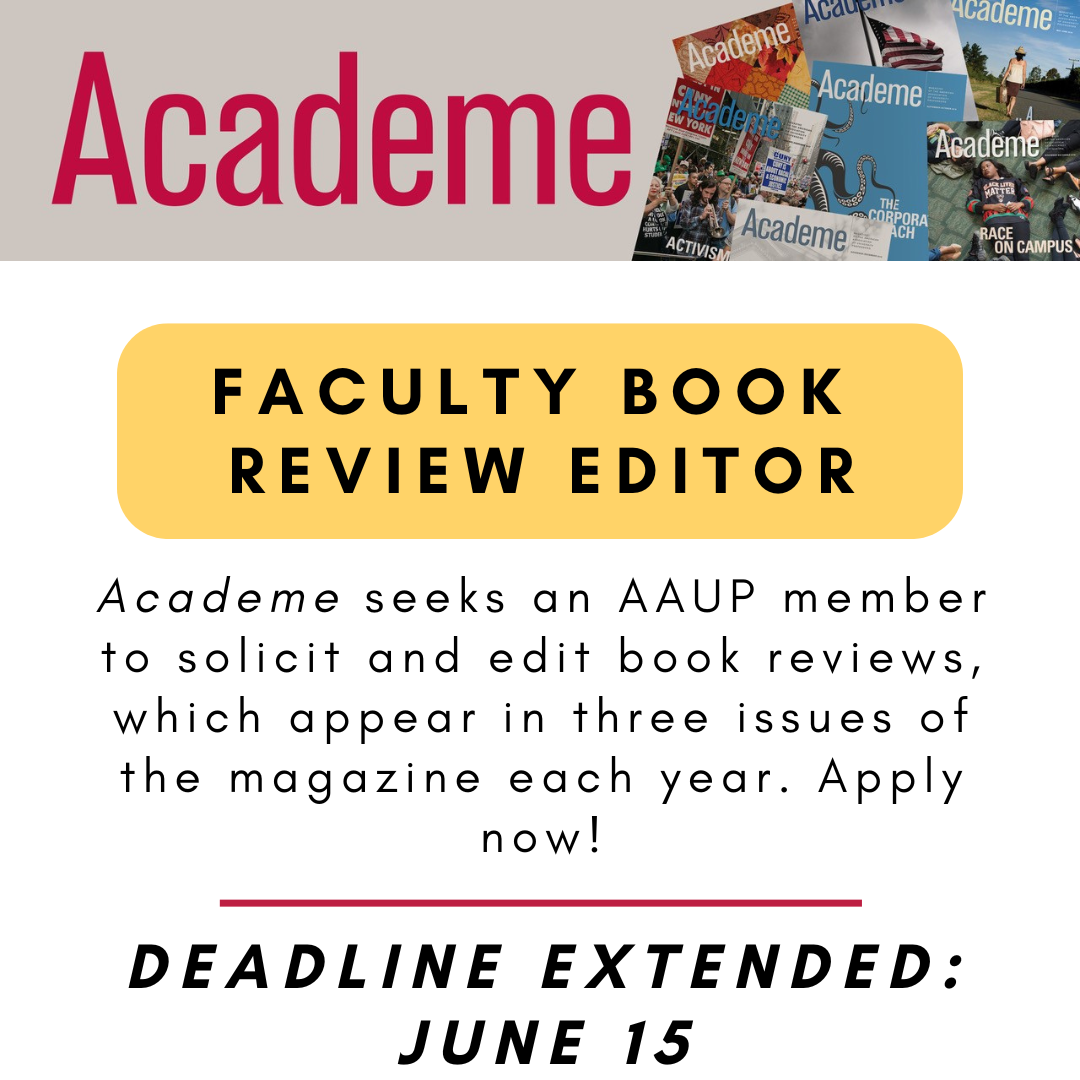- About
- Programs
- Issues
- Academic Freedom
- Political Attacks on Higher Education
- Resources on Collective Bargaining
- Shared Governance
- Campus Protests
- Faculty Compensation
- Racial Justice
- Diversity in Higher Ed
- Financial Crisis
- Privatization and OPMs
- Contingent Faculty Positions
- Tenure
- Workplace Issues
- Gender and Sexuality in Higher Ed
- Targeted Harassment
- Intellectual Property & Copyright
- Civility
- The Family and Medical Leave Act
- Pregnancy in the Academy
- Publications
- Data
- News
- Membership
- Chapters
From the General Secretary: A Faculty Voice
For me, part of the job description of a good professor is exercising a faculty voice, not just in instruction, scholarship, and extramural settings, but also with regard to institutional governance matters. Part of our responsibility, and our service to society, is to speak up and speak out. We must be an independent voice, grounded in our professional expertise and commitments.
Across the country, across institutional types, faculty members are indicating their desire to have a meaningful voice in defining the work and future of their institutions. This makes sense given faculty members’ expertise in specific fields, their knowledge of how academic institutions work, their commitment to their institutions, and their connections in their communities. Yet increasingly, especially in these tough times, consideration of the faculty’s voice in institutional matters is diminishing. Moreover, in public institutions, the independent faculty voice is being threatened by developments in the courts. The time has come to reassert the significance of faculty speech, not simply as a special prerogative of the faculty but as a fundamental contributor to sound governance, high-quality education, and the public interest.
A meaningful faculty voice is essential to sound governance and sound institutions. Because faculty understand, in a way no central administrator can, their various academic fields of work, faculty insight, initiative, and input are essential to making smart strategic decisions about academic programs and opportunities. Because they understand at the ground level how institutions of higher education work, and because they play a key role in the implementation of any central initiative, the faculty’s involvement in making decisions about such initiatives and in carrying them out is essential to the institutionalization of change in the academy.
A meaningful faculty voice is fundamental to the quality of education. Because our commitment is more to the academic work of the higher education enterprise than to entrepreneurial efforts to increase rankings and revenues, faculty help to keep the focus of institutions on academic mission and work. And because our responsibility is to our students and to the integrity of our fields and profession, the faculty’s role in institutional decision making can do more to ensure professional standards of practice than if our loyalty were to our institutions’ revenue or prestige enhancement.
A meaningful faculty voice is also fundamental to the public interest. Because faculty have some measure of protection from arbitrary administrative retaliation, they can provide a check on ill-advised administrative actions and in some cases can play the equivalent of a whistleblower role. And because as faculty members, our professional responsibility is to society, and our professional ethos rejects the existence of bosses, our loyalties are to a broad public interest more than to narrow institutional interests of rankings or revenue aspirations.
That is why the report of the Committee A subcommittee on Garcetti v. Ceballos, published in the previous issue of Academe, is so important. It calls our attention to threats against our academic freedom to speak about institutional matters. Society benefits from our speaking up and speaking out.
I encourage you to take the lead in addressing the current challenges we confront, in your institutions and beyond, and in defining the academy’s future. It might seem that this is not the time, that we are too busy, or that the situation we face cannot be changed, that the patterns we are in the midst of are inexorable. But ninety-five years ago the AAUP was founded on the belief that a faculty voice is fundamental to the health of the academy and to the benefit of society. Our predecessors worked to make that voice a reality. And now, it is time again for faculty not to submit to “new realities” but to shape them, with our voices. If we act together, we have the opportunity to influence the future of higher education. If we do not exercise our voice, we lose it, and in the process, society loses.





